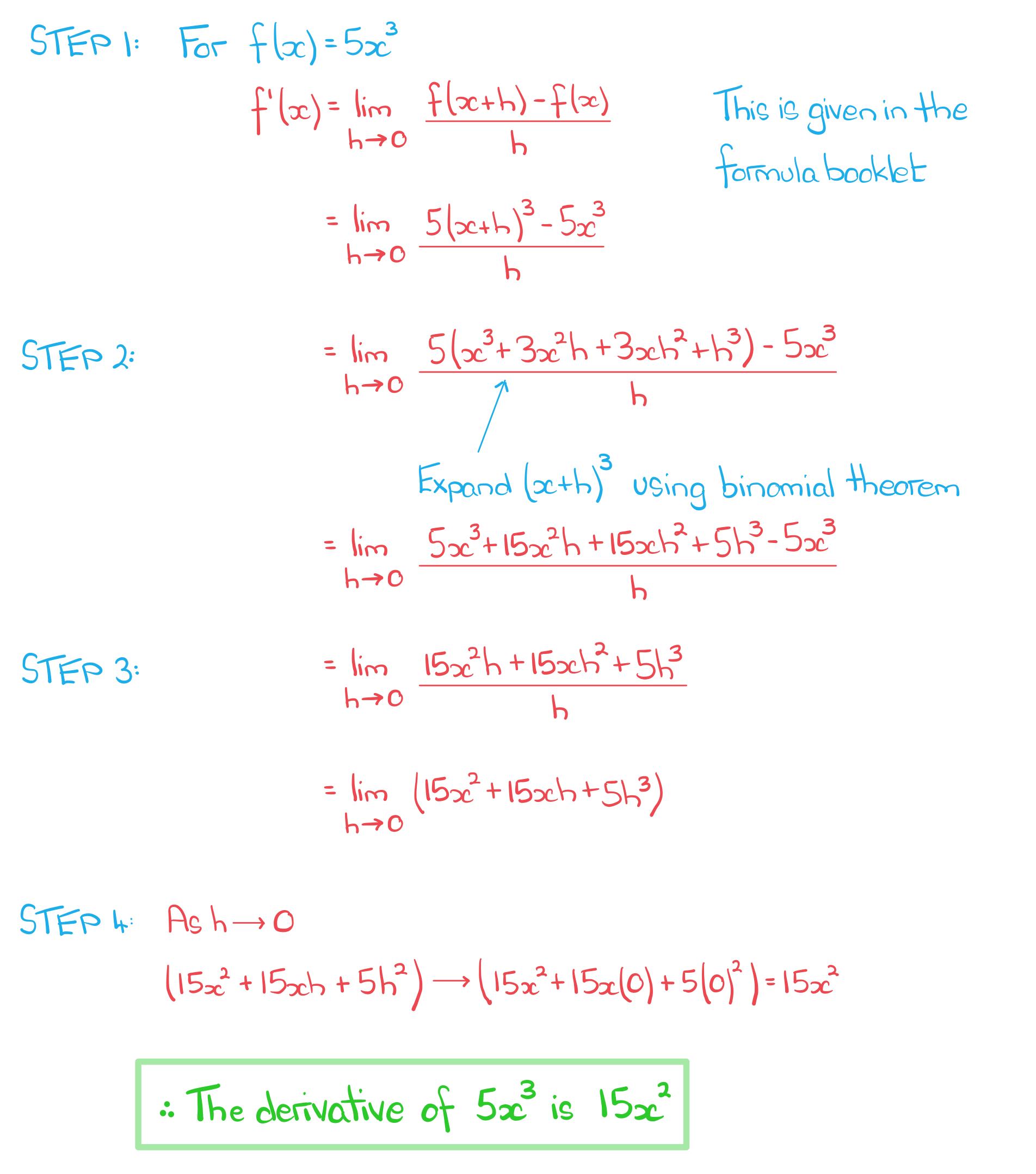First Principles Differentiation
What is differentiation from first principles?
- Differentiation from first principles uses the definition of the derivative of a function f(x)
- The definition is
means the 'limit as h tends to zero'
- When
,
which is undefined
- Instead we consider what happens as h gets closer and closer to zero
- Differentiation from first principles means using that definition to show what the derivative of a function is
- The first principles definition (formula) is in the formula booklet
How do I differentiate from first principles?
STEP 1: Identify the function f(x) and substitute this into the first principles formula
e.g. Show, from first principles, that the derivative of 3x2 is 6x
STEP 2: Expand f(x+h) in the numerator
STEP 3: Simplify the numerator, factorise and cancel h with the denominator
STEP 4: Evaluate the remaining expression as h tends to zero
Exam Tip
- Most of the time you will not use first principles to find the derivative of a function (there are much quicker ways!)
However, you can be asked to demonstrate differentiation from first principles - To get full marks make sure you are are writing lim h -> 0 right up until the concluding sentence!
Worked Example
Prove, from first principles, that the derivative of is
.

